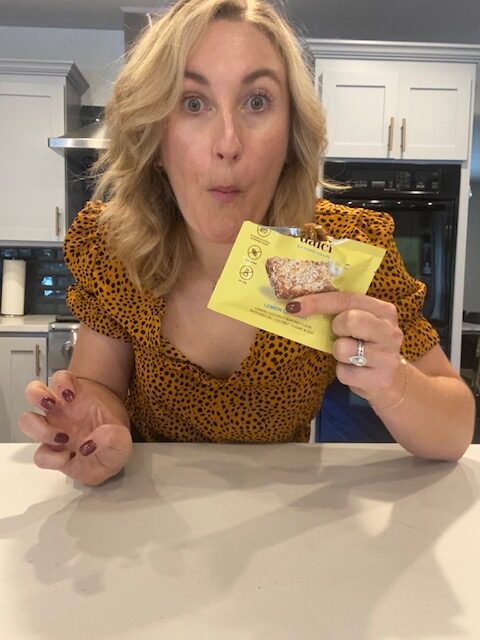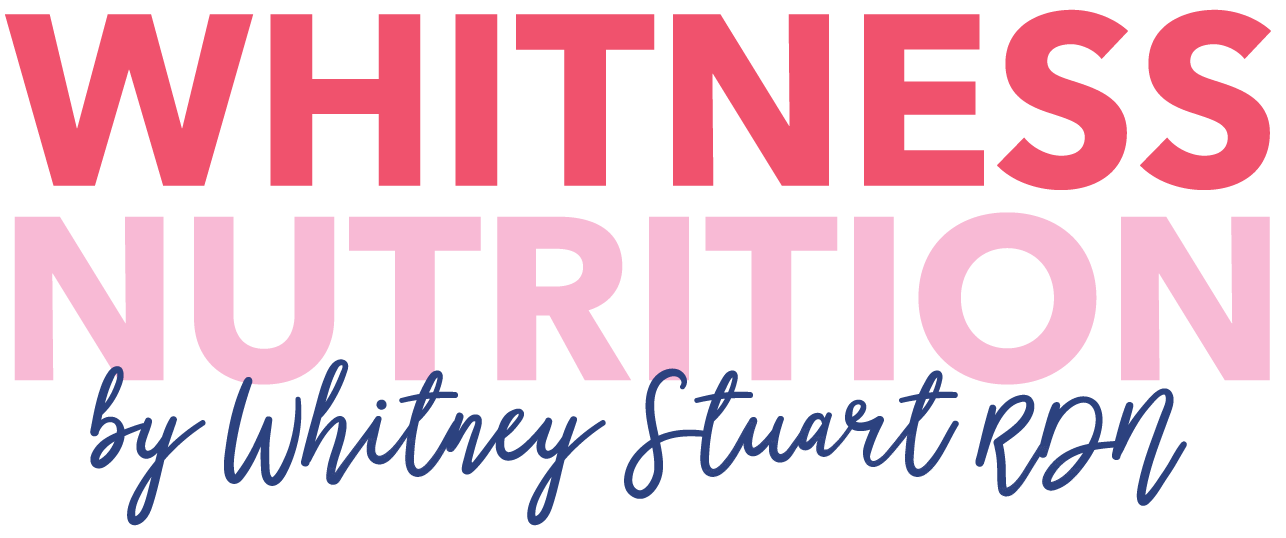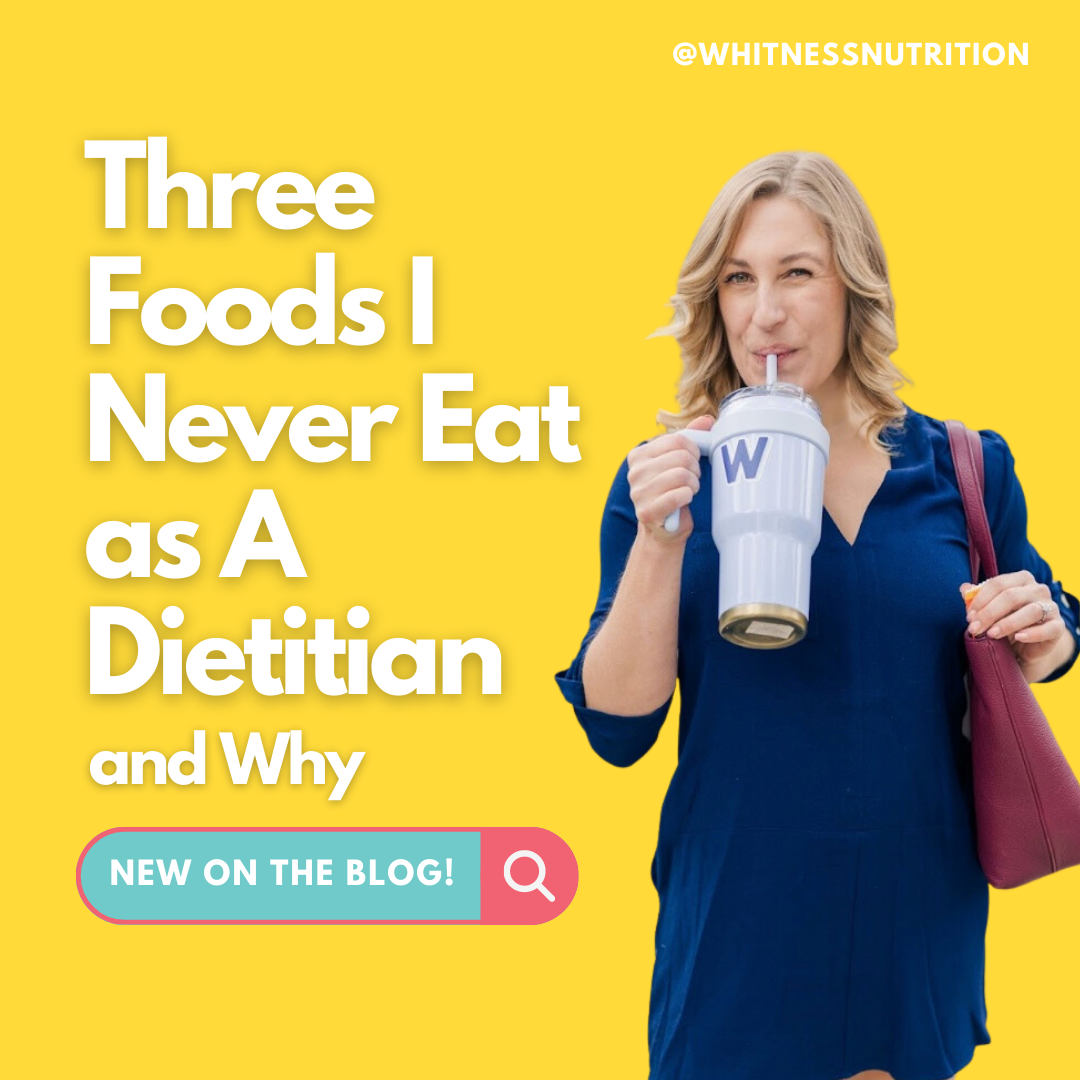Unhealthy health foods; 3 Foods I Avoid as A Dietitian
Are you ready to take charge of your health and embrace a lifestyle that truly nourishes your body? It’s time to get informed and feel empowered! As a Registered Dietitian, I know that what I eat affects every aspect of my life; family, fitness, work, and so on. I make conscious choices that steer me away from harmful substances and towards a vibrant well-being. I practice these habits in my own life as well as teach my patients the importance of real food for real joy. But, finding healthy foods and avoiding the unhealthy health foods fads can feel impossible for my patients!
While it’s impossible to avoid all unhealthy foods, it is possible to optimize one’s diet and avoid foods that can cause more harm than good. You may think of the more obvious “dietitian no no’s” like fast food or soda, but it is more deep than that! Similar to how I teach the importance of understanding sugars not sugar, I also teach the importance of understanding ingredients. Let’s discuss three foods to avoid, the risks they pose and exploring healthier alternatives that will support your journey to optimal health.
 These Health Foods aren’t actually healthy
These Health Foods aren’t actually healthy
1. Inflammatory Oils: The Hidden Culprits Damaging Your Well-Being
It’s time to banish inflammatory oils from your pantry and take control of your health. These oils, including soybean, canola, and vegetable oils, contain high levels of omega-6 fatty acids, which, when consumed in excess, can lead to chronic inflammation in the body. This inflammation is linked to a range of health issues, from heart disease to autoimmune conditions.
For a blood sugar friendly swap replace inflammatory oils with nourishing alternatives like extra virgin olive oil, avocado oil, ghee or coconut oil, which offer a plethora of health benefits. Don’t forget to check your sauce labels for possible sneaky addition of inflammatory oils!
2. Added Fiber: The Deceptive Health food Addition
While fiber is an essential component of a balanced diet, beware of excess added fiber in processed foods. Many products boast added fiber to promote digestive health, but they often contain isolated and refined forms that can lead to discomfort and bloating. Look out for added fibers like oat bran fiber, psyllium husk, cellulose, guar gum, pectin, and locust bean gum. When consumed in excess, these can cause GI discomfort such as bloating, constipation, and indigestion. A good rule of thumb? When the fiber percentage on the nutrition label is >30%; avoid!
For a blood sugar-friendly and happy tummy swap, focus on these natural sources of fiber
- whole fruits and vegetables
- whole grains, such as chickpea pasta and quinoa
- legumes, and nuts
These wholesome foods provide a wide spectrum of nutrients that promote optimal digestion and gut health naturally.
3. Sugar Substitutes: Low Calorie health foods to Avoid

In one’s quest for reducing sugar intake, many will turn to sugar alcohols or “low-sugar” options filled with copious amounts of artificial sweeteners. However, these alternatives come with their own set of risks. Artificial sweeteners can contribute to insulin resistance, weight gain, and even metabolic disorders when consumed in excess.
For a blood sugar friendly swap try natural sweeteners like dates, stevia, or fruit puree to satisfy your sweet cravings while keeping your health in check.These options can offer a sweet addition without the underlying effects sugar alcohols. Additionally these whole-food sources are low glycemic and can promote blood sugar balance. I’m a big fan of using maple syrup in small quantities as a sweetener thanks to its lower glycemic index of 54. It is actually the sweetener I use in my favorite protein waffles!
Looking to learn more about how to optimize your diet and better your health? Book a discovery call with me today!






